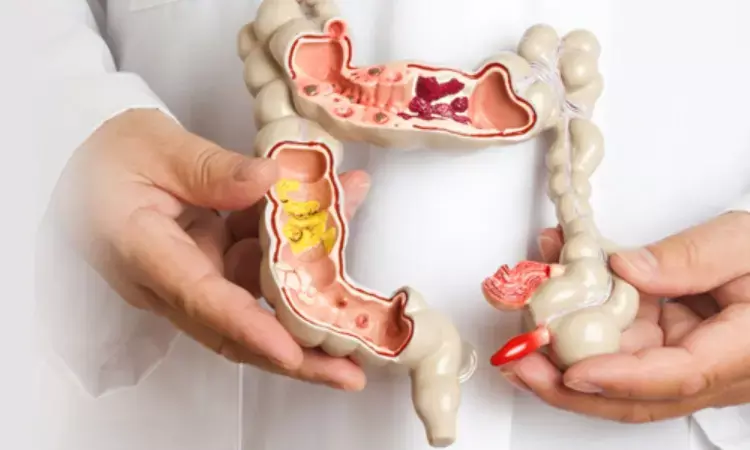- Home
- Medical news & Guidelines
- Anesthesiology
- Cardiology and CTVS
- Critical Care
- Dentistry
- Dermatology
- Diabetes and Endocrinology
- ENT
- Gastroenterology
- Medicine
- Nephrology
- Neurology
- Obstretics-Gynaecology
- Oncology
- Ophthalmology
- Orthopaedics
- Pediatrics-Neonatology
- Psychiatry
- Pulmonology
- Radiology
- Surgery
- Urology
- Laboratory Medicine
- Diet
- Nursing
- Paramedical
- Physiotherapy
- Health news
- Fact Check
- Bone Health Fact Check
- Brain Health Fact Check
- Cancer Related Fact Check
- Child Care Fact Check
- Dental and oral health fact check
- Diabetes and metabolic health fact check
- Diet and Nutrition Fact Check
- Eye and ENT Care Fact Check
- Fitness fact check
- Gut health fact check
- Heart health fact check
- Kidney health fact check
- Medical education fact check
- Men's health fact check
- Respiratory fact check
- Skin and hair care fact check
- Vaccine and Immunization fact check
- Women's health fact check
- AYUSH
- State News
- Andaman and Nicobar Islands
- Andhra Pradesh
- Arunachal Pradesh
- Assam
- Bihar
- Chandigarh
- Chattisgarh
- Dadra and Nagar Haveli
- Daman and Diu
- Delhi
- Goa
- Gujarat
- Haryana
- Himachal Pradesh
- Jammu & Kashmir
- Jharkhand
- Karnataka
- Kerala
- Ladakh
- Lakshadweep
- Madhya Pradesh
- Maharashtra
- Manipur
- Meghalaya
- Mizoram
- Nagaland
- Odisha
- Puducherry
- Punjab
- Rajasthan
- Sikkim
- Tamil Nadu
- Telangana
- Tripura
- Uttar Pradesh
- Uttrakhand
- West Bengal
- Medical Education
- Industry
Next-generation stool DNA test may improve sensitivity for colorectal cancer detection: NEJM

Colorectal cancer remains a leading cause of cancer-related mortality worldwide, highlighting the crucial need for effective screening strategies. A recent study unveiled the next-generation multitarget stool DNA test which is more effective in colorectal cancer screening. This innovative screening tool combines assessments of DNA molecular markers and hemoglobin levels to enhance specificity and accuracy in detecting colorectal cancer.
This research was conducted by Thomas Imperiale and colleagues on asymptomatic adults aged 40 and above who were undergoing screening colonoscopy and evaluated the performance of the new DNA test. The results revealed positive outcomes, with the test expressing a sensitivity of 93.9% for colorectal cancer and a specificity of 90.6% for advanced neoplasia, which includes colorectal cancer and advanced precancerous lesions.
Also, the next-generation DNA test demonstrated a sensitivity of 43.4% for advanced precancerous lesions by surpassing the performance of commercially available fecal immunochemical tests (FIT). While the FIT showed a sensitivity of 67.3% for colorectal cancer and 23.3% for advanced precancerous lesions, the new DNA test expressed superior performance in detecting both.
Despite the enhanced sensitivity, this next-generation DNA test showed a lower specificity for advanced neoplasia compared to FIT. However, no adverse events were reported during the study, underscoring the safety and feasibility of this innovative screening approach.
This study emphasized the significance of the outcomes in advancing colorectal cancer screening efforts. By highlighting the potential of next-generation DNA testing, there is improvement in early detection of colorectal cancer and precancerous lesions which ultimately saves lives through timely intervention.
Reference:
Imperiale, T. F., Porter, K., Zella, J., Gagrat, Z. D., Olson, M. C., Statz, S., Garces, J., Lavin, P. T., Aguilar, H., Brinberg, D., Berkelhammer, C., Kisiel, J. B., & Limburg, P. J. (2024). Next-Generation Multitarget Stool DNA Test for Colorectal Cancer Screening. In New England Journal of Medicine (Vol. 390, Issue 11, pp. 984–993). Massachusetts Medical Society. https://doi.org/10.1056/nejmoa2310336
Neuroscience Masters graduate
Jacinthlyn Sylvia, a Neuroscience Master's graduate from Chennai has worked extensively in deciphering the neurobiology of cognition and motor control in aging. She also has spread-out exposure to Neurosurgery from her Bachelor’s. She is currently involved in active Neuro-Oncology research. She is an upcoming neuroscientist with a fiery passion for writing. Her news cover at Medical Dialogues feature recent discoveries and updates from the healthcare and biomedical research fields. She can be reached at editorial@medicaldialogues.in
Dr Kamal Kant Kohli-MBBS, DTCD- a chest specialist with more than 30 years of practice and a flair for writing clinical articles, Dr Kamal Kant Kohli joined Medical Dialogues as a Chief Editor of Medical News. Besides writing articles, as an editor, he proofreads and verifies all the medical content published on Medical Dialogues including those coming from journals, studies,medical conferences,guidelines etc. Email: drkohli@medicaldialogues.in. Contact no. 011-43720751


